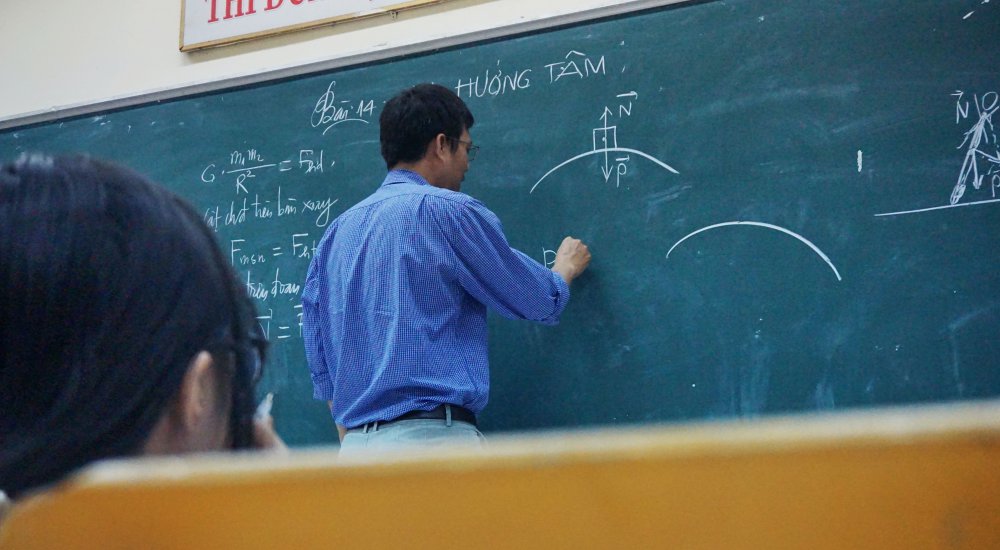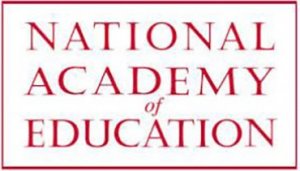NAEd/Spencer Postdoctoral Fellowship on Educational Research

The NAEd/Spencer Postdoctoral Fellowship supports early career scholars working in critical areas of education research. Through professional development, funding, and mentorship from senior scholars, the fellowship enhances the career and research opportunities of the fellow.
As a highly competitive initiative, this fellowship annually identifies and supports 25 of the most exceptional researchers conducting postdoctoral studies relevant to education.
The award
This non-residential fellowship supports scholars who promise to make significant contributions to the field of education and advances the careers of the recipients. Scholars may conduct their research at their home institution or at another research site that they have arranged. The fellowship comprises three key components:
- Fellows receive $70,000 for one academic year, distributed in two installments.
- Fellows participate in three professional development retreats facilitated by NAEd members and other distinguished scholars. These retreats offer general and specialized discussions to enhance the fellows’ research capabilities and academic growth.
- Fellows choose an NAEd member or another esteemed scholar as a mentor, providing guidance and support throughout the academic year.
Eligibility
To receive the fellowship, applicants must:
- Have received their PhD, EdD, or equivalent research degree between January 1, 2020, and December 31, 2024. These dates are accurate for the upcoming application cycle. If you will complete your doctorate this year (2025), you are eligible to apply next year.
- Not hold tenure status at the time of the application deadline.
- Have a demonstrated record of research experience in education and the project must be in education research.
- Submit an individual application as we will not accept group applications.
Funding priority
The research topic must focus primarily on education, but the fellowship welcomes postdocs from any academic discipline or professional field. Fellowship recipients have included individuals from anthropology, architecture, art history, communications, economics, education, history, linguistics, literature, philosophy, political science, psychology, public health, religion, and sociology. The fellowship does not limit eligibility to these fields. Candidates should demonstrate their interest in conducting education research long term.
Application review process
Review occurs in four stages:
- Staff screen applications for completness and fit (i.e., research focuses on education).
- The selection committee reviews the applications in February. Each application is reviewed by two committee members. The committee then chooses approximately 50-60 semifinalists. All applicants are notified of their status after this review.
- Two senior scholars in the applicants’ discipline evaluate the application and provide feedback to the selection committee.
- The selection committee reviews the semifinalist applications in April. The committee then chooses 25 finalists. All remaining applicants are notified of their status after this review.
Application components
You will submit the following components as part of your application through the online portal:
Background
- Demographic data
- Education history
- Employment history
- A list of scholarships, fellowships, and assistantships you have received or have applied
- A list of honors and awards received
- A list of publications and presentations
- Information about the completion of pre-dissertation requirements
- Language(s) proficiency
Career statement
Describe what led you to your current role and interest in this project. You should indicate future professional plans and how the proposed research contributes to long-term professional goals.
Abstract
In a single-spaced paragraph, summarize the substantive focus and research design of the project and its contribution to education.
Project description
In no more than 10 double-spaced pages with one-inch margins, and at least 11-point Times New Roman font, describe the research project. The document is to have page numbers, the applicant’s full name, and email address as a running header.
In the narrative, include the goals of the project, its contribution to the field, and the significance of the work, especially as it relates to education. Provide evidence that there is a solid plan for conducting the proposed study. Place the project in context, and outline the theoretical grounding and the relevant literature. Describe the research methods, data analysis, and interpretation techniques. Describe the manner in which the outlined inquiry is part of a larger context of work, and give examples of that larger context.
Each proposal is reviewed by senior scholars familiar with the field and by others less familiar; thus, situate language specific to a field within an argument persuasive to a generalist audience.
Append a single-spaced, max two page, bibliography of the sources most important to the project (include works cited in the narrative).
Upload your narrative and bibliography as one document (maximum of 12 pages). You may include technical and supplemental appendices (charts, graphs, tables, questionnaires, etc.) that do not count towards the limit. However, be judicious, as we do not require judges to review material in the appendices. You are to include information essential to understanding the project in the narrative (including any coding systems).
Example of past research relevant to education
In no more than 20 double-spaced pages, provide an example of a previous research project that demonstrates your promise as a researcher and your ability to complete the proposed project. This can be a chapter of a book, an article, or other research work. The writing sample may be published or unpublished.
Note: most journal publications are single-spaced and double-columned; we will not accept this format. If you wish to submit a published piece, you must reformat to the NAEd application guidelines: double-spaced, 11-point Times New Roman font, and 20 pages or less, including references. If your piece is longer than 20 pages, you may submit an excerpt and provide a link to the full document. When providing an excerpt, select the content carefully, as reviewers are only required to review what you submit.
Curriculum vitae/resume
Upload a current CV or resume that includes the categories below. Do not include acronyms in the CV.
- Education beyond high school (include any professional education beyond the highest earned degree), beginning with your most recent program of study. Be sure to include the name(s) of your institution, location, major/minor, degree, and date awarded.
- Employment, beginning with most recent. Include your title, the organization name, location, and dates.
- Awards or fellowships received. Include title and dates.
- Publications and research relevant to education.
Repeat applicants only: project summary
Provide the title and a one-paragraph summary of your previous proposal(s) for every year applied.
Letters of recommendation
We require three letters of recommendation. Recommenders must submit their letters online. We will only accept three letters per applicant. We recommend you request letters early as letter writers have the same deadline as applicants. We will not allow extensions.
Once you submit the name and email of your recommenders, the online application will send an automated request to submit. As a precaution, we recommend applicants notify reviewers that the email is forthcoming and to check their spam folder if they do not see the invitation in their inbox.
Resources
The Spencer Foundation published three how-to guides applicants may find beneficial while working on their proposals.
- Writing Successful Research Grant Proposals
- Communicating Your Qualitative Research Design
- A Guide to Quantitative Proposals
Overall, a strong proposal presents a well-grounded and convincing argument for the proposed research. Fellowships are won on the strength of their innovative and important ideas and the extent to which the proposed methods further these ideas. These guides should not be thought of as definitive checklists for crafting a successful proposal, but rather, they offer helpful guidance for writing field-initiated research grant proposals and designing strong quantitative and qualitative methods.
In addition to the guides, applicants may find the Social Science Research Council’s “On the Art of Writing Proposals” beneficial.
